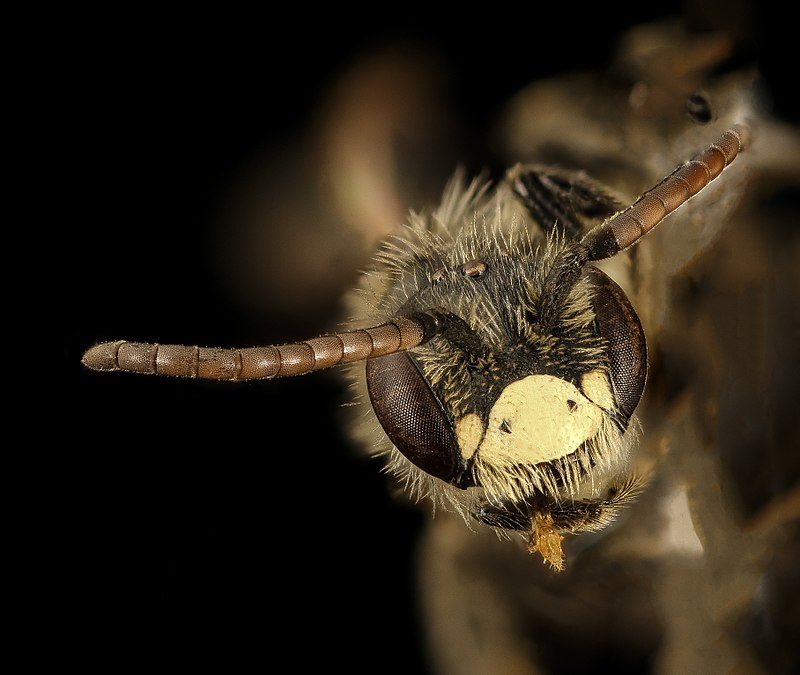
Photo courtesy of wiki commons
Forget Game of Thrones, Breaking Bad, or House of Cards – the daily intrigues of a typical bee hive “puts a good TV drama to shame,” says Darci Jones, founder of the New Orleans Beekeepers Association.
It all starts with the queen, Jones says, who is served day and night. “The male bees, when they hang around the hive, they’re treated nicely, they’re fed.” But once they’ve outlived their usefulness, the queen “kicks them out the front door and they don’t come back.”
The mating process is even more perilous for the males – or ‘drones.’ “When they’re sent out into the world to mate with the new queen, the virgin queen,” Jones says, “they find a designated area up in the sky somewhere, and the virgin queen will mate with ten to fifteen drones.
“But when they do that, [the males] lose their life. They die,” she adds, although “if you’re going to die, it might be a good way.”
But in the midst of all of this drama, bees are literally feeding us. Studies have shown that one out of every three bites of what humans eat is pollinated by a bee or another pollinator, Jones says. “If you went into your food market and looked at all the oranges and all the different things that would not get pollenated if bees were not here, then you’d be missing out on a lot.”
Not to mention the other useful products that bees produce, including the obvious – honey – as well as wax, which can be used to make everything from candles to bathing products, Jones says.
Yet bees still get a bad rap, Jones says, due to the many misconceptions out there. “The biggest problem I have is all the killer bee hype,” says Jones. “We occasionally get some bees that we call ‘hot’ out of the port, they sneak in on the boats, but those hives are very quickly eliminated or diluted, so it’s very rare that you’re going to have bees chasing you down the street.”
For the most part, Jones says, bees are very friendly. “If you know how to read them, then you know how to treat them and you won’t get hurt yourself. You learn how to behave, you learn how, when you go into the hive and lift a frame, not to squish a bee. And then you learn their behavior, when they go out in the morning, when they come home. If it’s too hot, they do something called bearding, on the side of the hive, and that’s just to cool off, and they do communicative dances to tell each other where the good pollen.”
In fact, it’s actually the bees who are in danger, says Jones. “They’re not being maintained, there’s more kill-offs than there used to be. Part of it is there are different pests attacking the bees than there used to be, part of it is chemical exposure, so there’s different variables.
In addition, people started “treating bees like indentured servants, taking them from crop to crop to pollenate and it’s not healthy,” Jones says. “They need a variety of different pollens and food, so to give them nothing but a monoculture, it weakens them.”
To learn more, check out a meeting of New Orleans Beekeepers Association – they meet every second Thursday of the month, says Jones. “We’ll guide you through beekeeping on a budget, and we’ll guide you through specific problems that you’re having.”
Or just come to meet some interesting people. “Beekeepers are just a little bit different kind of characters,” says Jones. “Saying you’re a beekeeper always gets someone’s interest.”
 NOLAbeings Multimedia artist Claire Bangser created NOLAbeings as a portrait-based story project that marries...
NOLAbeings Multimedia artist Claire Bangser created NOLAbeings as a portrait-based story project that marries...  Voodoo in New Orleans: Reviving history: New Orleans fortune telling This article takes a deep dive into the history of Voodoo in New Orleans, its hybridization with Catholicism, and its present-day place in the city's culture. The author visits fortune-tellers in the French Quarter, using their guidance as a tool for introspection rather than a deterministic predictor of the future. Through her experiences in New Orleans, the author feels a mystical connection to both the past and the future.
Voodoo in New Orleans: Reviving history: New Orleans fortune telling This article takes a deep dive into the history of Voodoo in New Orleans, its hybridization with Catholicism, and its present-day place in the city's culture. The author visits fortune-tellers in the French Quarter, using their guidance as a tool for introspection rather than a deterministic predictor of the future. Through her experiences in New Orleans, the author feels a mystical connection to both the past and the future. 